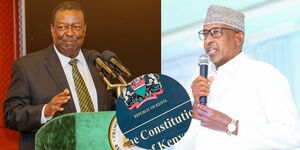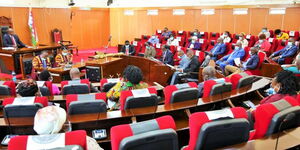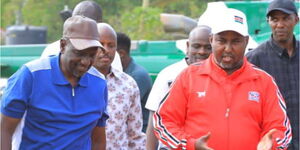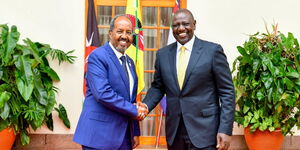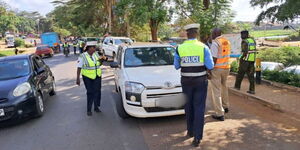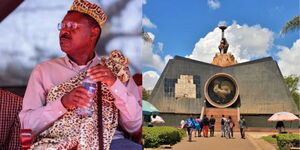The construction of the Ksh16 billion Kenya Advanced Institute of Science and Technology (KAIST) at the Konza techno-city has slowed down following a language barrier between Kenyan and Korean workers.
Speaking after inspecting the project on Saturday, July 16, University Education and Research Principal Secretary, Simon Nabukwesi, stated that that none of the foreign nationals could speak or understand English.
Nabukwesi stated that the absence of a direct communication path slows decision making process hence stalling the project, vowing to seek redress from the contracted Korean company.
"According to their contract, they were all required to be English speakers. We will reach out to the management in Korea to have them recalled and replaced," he stated.
Besides the inability to express themselves in the country's official language, the PS stated that a number of the Korean workers were not qualified to execute the job.
In addition, he stated that the government would see to it that the international firm adheres to the state policy on conducting projects in the country.
"They are required to subcontract 49 per cent of the project to local companies as required by the law and pay them as agreed in the contract," Nabukwesi added.
He further expressed concerns that the current stalemate may derail the completion of the project by the set September 2023 timeline.
With its construction falling in line with Kenya's Vision 2030, KAIST will provide training in science, technology, and innovation - key pillars of the development blueprint.
It will have 10 research science labs working with specialized local and international researchers in science, technology and engineering.
The institution will be central in the development of academic curricula for Mechanical Engineering, Electrical/Electronic Engineering, ICT Engineering, Chemical Engineering, Civil Engineering and Agricultural Biotechnology.
The proposed architectural design of the learning institution will be a replica of the Korean Advanced Institute of Science and Technology and will sit on 36 acres of land.


